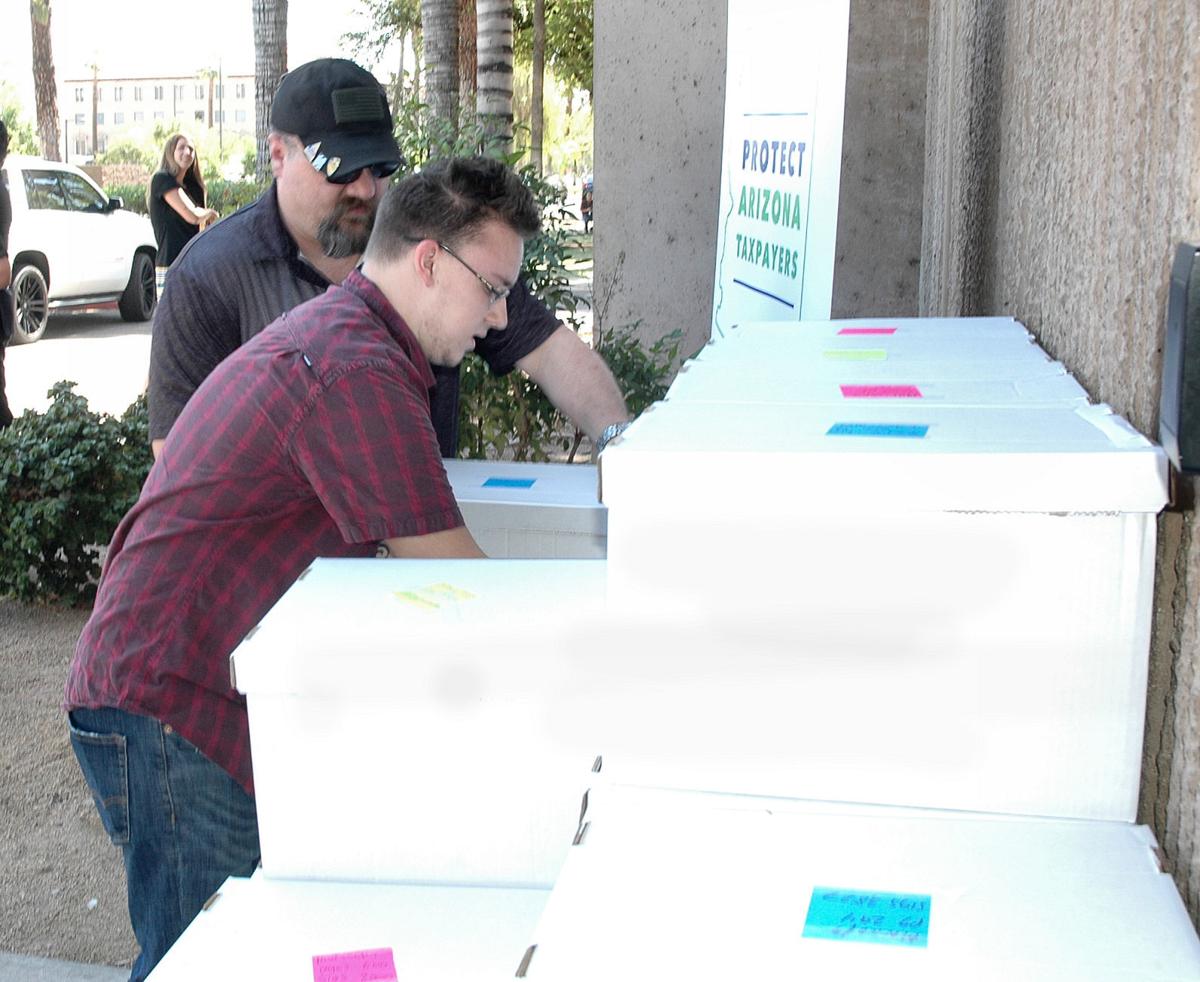PHOENIX — A new initiative proposal seeks to block state lawmakers from proposing and voting on measures that could benefit themselves and family members.
Paperwork filed Tuesday with the secretary of state’s office would make it illegal for legislators to take any action on measure in which they or a relative have a “direct and substantial financial interest.” That is defined to mean any financial benefit that is not shared by at least a significant portion of the general public as a whole.
“I don’t have to name names,” said Andrew Chavez, who is behind the ballot proposal.
There are conflict-of-interest restrictions on lawmakers. But that has generally been defined as a “rule of 10,” meaning there is no legal conflict if the legislation affects at least 10 people.
That, for example, allowed Steve Yarbrough, as Senate president, to propose laws that increase funds going into vouchers even though he ran an organization that got to keep some of the dollars it distributed, as there were others in the same business.
It has meant Sen. Eddie Farnsworth of Gilbert was able to vote on changes in state laws governing charter schools despite the fact he owned one of many in the state. And it permitted Rep. David Gowan, R-Sierra Vista, who sells fireworks part of the year, to propose expanding the number of days they can legally be sold in Arizona.
It also opens the door to things like landlords in the Legislature pushing proposals making it easier for them to evict tenants from property they own.
The language does have exceptions allowing all legislators to vote on the state budget and changes in tax laws.
And Chavez has built in language designed to protect teachers serving in the Legislature, allowing them to vote not just for pay raises for educators but even to propose and support legislation that would reimburse them for out-of-pocket expenses for classroom supplies.
Chavez has until July 2 to gather at least 237,645 valid signatures to put the issue on the 2020 ballot.
He is doing so under various changes in state laws approved by the Republican-controlled Legislature that have thrown new roadblocks into the path of those proposing their own measures. So his initiative also proposes to repeal many of them.
One is the 2016 ban on “ballot harvesting” that makes it a felony to deliver anyone else’s early ballot to county recorders.
It also proposes to undermine a tactic used by initiative foes to try to keep measures from ever getting to the ballot in the first place.
Under current law, anyone challenging initiative petitions can issue subpoenas demanding that each circulator show up in court to verify that he or she did, in fact, circulate the petition and witness each signature. Attorney Roopali Desai, who is working with Chavez, said that creates an opportunity for abuse.
“It just gets used as a weapon to see who doesn’t show up so you can wipe out all their signatures,” she said, even if those signatures were valid.
The initiative still allows initiative foes to issue subpoenas. But it would first require the attorney who wants to issue it to provide a “good faith” basis to believe there is some problem, like a forgery.
More to the point, it would require that anyone challenging the signatures provide “an independent legal basis” for a judge to strike them, rather than simply the fact the circulator did not show up in court.
Finally, the Chavez’s initiative would require that early ballots go out 40 days before an election instead of the current 27, giving those who request them more time to consider the candidates and issues.
Chavez acknowledged that some of the changes, particularly on the laws governing initiative petitions, could have a direct impact on him as the owner of Petition Partners, one of the leading Arizona-based firms that helps collect signatures for a fee.
But Chavez said the real beneficiaries would be volunteer groups, like Save Our Schools, who do not have the resources to hire paid circulators and lack the funds and legal help to navigate the new requirements.





